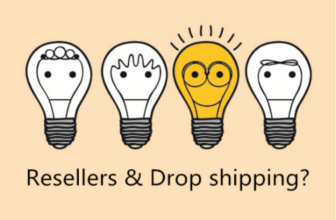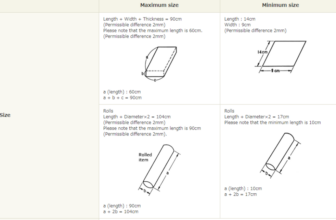
When you think of Shopify, physical products like shoes, electronics, and toys often come to mind. However, Shopify offers a great platform for selling non-physical products as well. Whether you’re a novice entrepreneur or an expert in a specific field, non-physical products present a profitable opportunity. You can sell anything from digital downloads to consultations, experiences, and memberships, as long as there’s a market for it.
If you’re looking to explore non-physical products, here are 12 ideas that could help you succeed on Shopify.

1. Sell Appointments
While shoes and fashion products are popular, some people still prefer personalized in-store experiences. This is where appointments come in. For instance, Toufie, a women’s shoe designer, offers customized shoes based on individual measurements. Appointments are no longer limited to real estate or healthcare – they’re making their way into industries like fashion and furniture.
Apps to use: The Appointment Booking app allows customers to book convenient time slots and synchronizes with Google Calendar for instant confirmation emails.
2. Sell Memberships
If you’re an expert in a particular field, memberships are a great way to generate recurring income. While there’s plenty of free information available, you can offer exclusive access to your expertise at a price.
For example, the California Native Plant Society sells memberships through Shopify, allowing customers to enjoy ongoing access to content.
Apps to use: Recurring Membership enables Shopify merchants to sell one-time or subscription-based memberships, and customize content based on the customer’s subscription level.
3. Sell Consultation Services
Do you have specialized knowledge in a particular area? Whether you’re a nutritionist, DJ, architect, or beautician, you can sell consultations on Shopify. Healthy Habits Living, for example, offers nutrition consultations alongside their online supplement store.
Apps to use: Use Shopify’s Invoice Generator or Sufio to automate invoice creation and send them to clients directly.
4. Sell Digital Products
Digital products are an evergreen market, with increasing demand in areas like music, design templates, fonts, and more. Unlike physical products, they don’t wear out over time, and they’re easy to manage and deliver.
For instance, Pretty Presets sells Lightroom presets through Shopify. Digital products are a profitable and scalable option, and the market is expected to grow well into the future.
Apps to use: Digital Downloads, SendOwl, FetchApp, and Sky Pilot are great apps for selling digital products.
5. Sell Event Support Products
Event support products, such as lighting, tables, and chairs, are another lucrative non-physical offering. The Mobile Locker Co. rents lockers for outdoor events, allowing participants to book lockers online in advance.
Apps to use: BookThatApp, Powr Form Builder, and Tidio are ideal for collecting event-specific data and real-time bookings.
6. Sell Experiences
Experiential products like hiking trips, rock climbing, and guided tours are another way to generate sales. Aspen Expeditions Worldwide, for example, offers guided trips and camping expeditions through their Shopify store.
Apps to use: Use Powr Form Builder to collect additional customer details, such as medical records and emergency contacts.
7. Sell Courses, Workshops, and Webinars
The online learning market is booming, and you can sell courses and workshops through Shopify. Fitness classes, language lessons, or even programming tutorials are in demand. Buti Yoga, for instance, offers dance and yoga classes online via Shopify.
Apps to use: Appointment Booking and Recurring Membership apps can help with booking and managing classes and memberships.
8. Rent Products
Rental businesses are growing, especially for items like mannequins, tools, and equipment. Mannequin Madness rents retail props, and Fitzroy allows customers to choose rental periods for their products online.
Apps to use: Powr Form Builder and BookTheApp help streamline rental requests and include booking calendars on product pages.
9. Offer Quotes and Installations
Many customers need professional help installing products like solar panels, air conditioners, or appliances. If you’re skilled in these areas, you can offer your installation services on Shopify. GoGreenSolar.com, for example, sells solar energy solutions and offers installations.
Apps to use: Quick Quote allows you to gather and track customer quotes, making it easier to manage installation inquiries.
10. Accept Donations
Nonprofits and charitable organizations can use Shopify to raise funds by selling branded merchandise or accepting one-time and recurring donations. The Calgary Public Library Foundation, for instance, sells merchandise to support their cause.
Apps to use: ReCharge is ideal for recurring donations, while Share the Love lets you offer a donation option at checkout.
11. Sell Tickets to Events
Event ticket sales are booming, and Shopify is a great platform for selling tickets for concerts, festivals, and more. Undertow, for example, works with artists and bands across the U.S. to sell downloadable event tickets through Shopify.
Apps to use: Events Calendar keeps clients updated on events, while SendOwl and Sky Pilot allow for easy ticket delivery. You can also use Shopify’s QR Code Generator app.
12. Sell Digital Gift Cards
Digital gift cards are one of the easiest non-physical products to sell. They’re convenient for customers, and you can add them to any Shopify store. Whether you sell physical or digital goods, offering gift cards can boost your sales.
Apps to use: Shopify’s built-in gift card feature is available for merchants on higher-tier plans.
Conclusion
Selling non-physical products on Shopify is a profitable and growing business model. Whether you choose to offer memberships, consultations, digital products, or event services, there are plenty of opportunities to succeed. Do your research, choose a product that suits your expertise, and leverage the right apps to enhance your Shopify experience.
Have you sold any non-physical products on Shopify? Which ones worked best for you? Let us know in the comments!





![Finest HEPA Air Purifiers to Promote On-line + Wholesaler & Dropshipper [China/US/UK]](https://www.tinydeals.net/blog/wp-content/uploads/2025/01/image-165-1024x1024-336x220.png)
